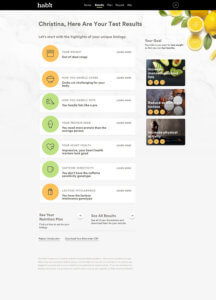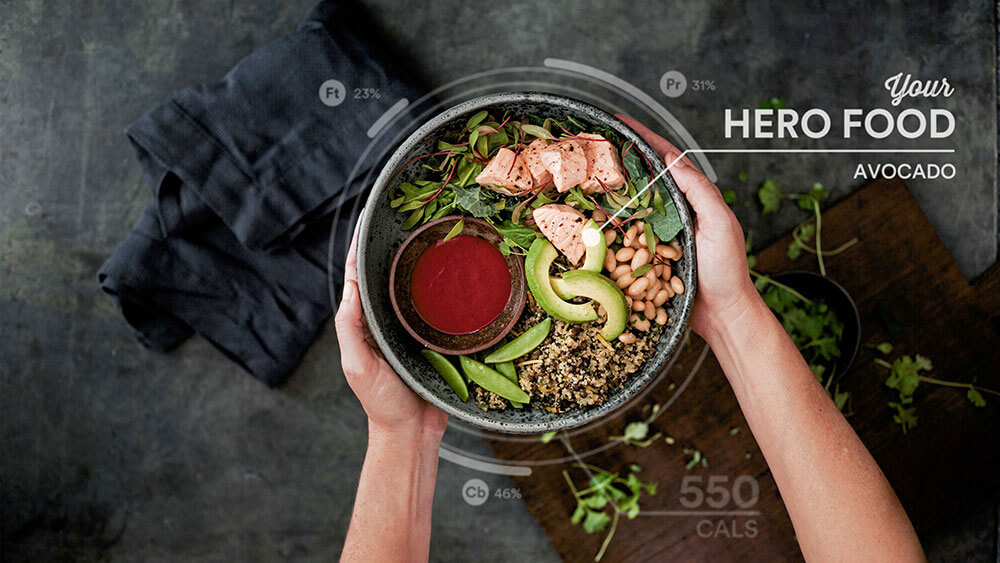
Habit uses genetic testing to determine the best mix of foods for an individual. (Habit photo)
Event organizers are no strangers to food allergies. As attendees submit more requests for gluten-free, dairy-free, vegetarian, and vegan dishes, organizers have focused on working with catering managers to accommodate food sensitivities. But the next generation of group meals may not be about avoiding what not to eat. Instead, it will include the ideal ingredients for individual attendees based on their DNA.
The prediction sounds like a science-fiction-style setting for a big kitchen at a convention center, but the F&B landscape is already seeing signs of unprecedented customization. “The Future 100: 2019,” a trend report from J. Walter Thompson Intelligence, points to personalized nutrition as one of the big food and beverage trends to watch in the coming year.
“The lines between professional healthcare and lifestyle-oriented healthcare are blurring as the costs of DNA analysis and testing become much lower — supported by advances in AI,” the report states. “With the rise of self-quant and wellbeing movements, consumers are also actively looking for new ways to manage health and seeking hyper-personalized recommendations.”

After submitting DNA to Habit, the company shares a nutrition action plan with clients. (Habit photo)
They’re having some luck finding those recommendations. Consider Habit, a company that uses genetic testing to determine the best mix of foods for an individual. Customers complete a test using an at-home kit for DNA collection and blood samples. Then, they send it to a lab that analyzes how their bodies handle carbs, proteins, fats, and more. After the analysis, Habit helps them establish better eating routines via a partnership with Amazon Fresh. Weekly recipe suggestions include ingredients tailored to their personal needs, and because Amazon does everything, those ingredients can be shipped directly to their front doors.
Will event organizers start sending DNA kits to attendees? Definitely not. In addition to that having disastrous impacts on an overall F&B budget, I can’t begin to imagine the level of GDPR complications that arise in handling someone’s DNA data. However, the push toward a new level of personalization at the dining table cannot be ignored, and convention centers and conference venues can certainly explore opportunities for more customized cuisine.
Take a look at McDonald’s. While I’m guessing there are no items from the fast-food chain on Habit’s list of recommendations, the company is making big moves to simplify personalization efforts in the ordering process with self-serve kiosks that list calorie counts and make adjusting menu items easy. The chain plans to add the kiosks to 1,000 stores per quarter over the next two years. As hungry consumers get used to eliminating the cheese on their breakfast sandwiches and making at-home dinners packed with evidence-based vitamin recommendations, it’s safe to say they’ll be looking for more options than the standard choice of chicken or beef.

Habit helps its customers establish better eating routines by showing how their bodies react to carbs, proteins, fats, and more. (Habit photo)
